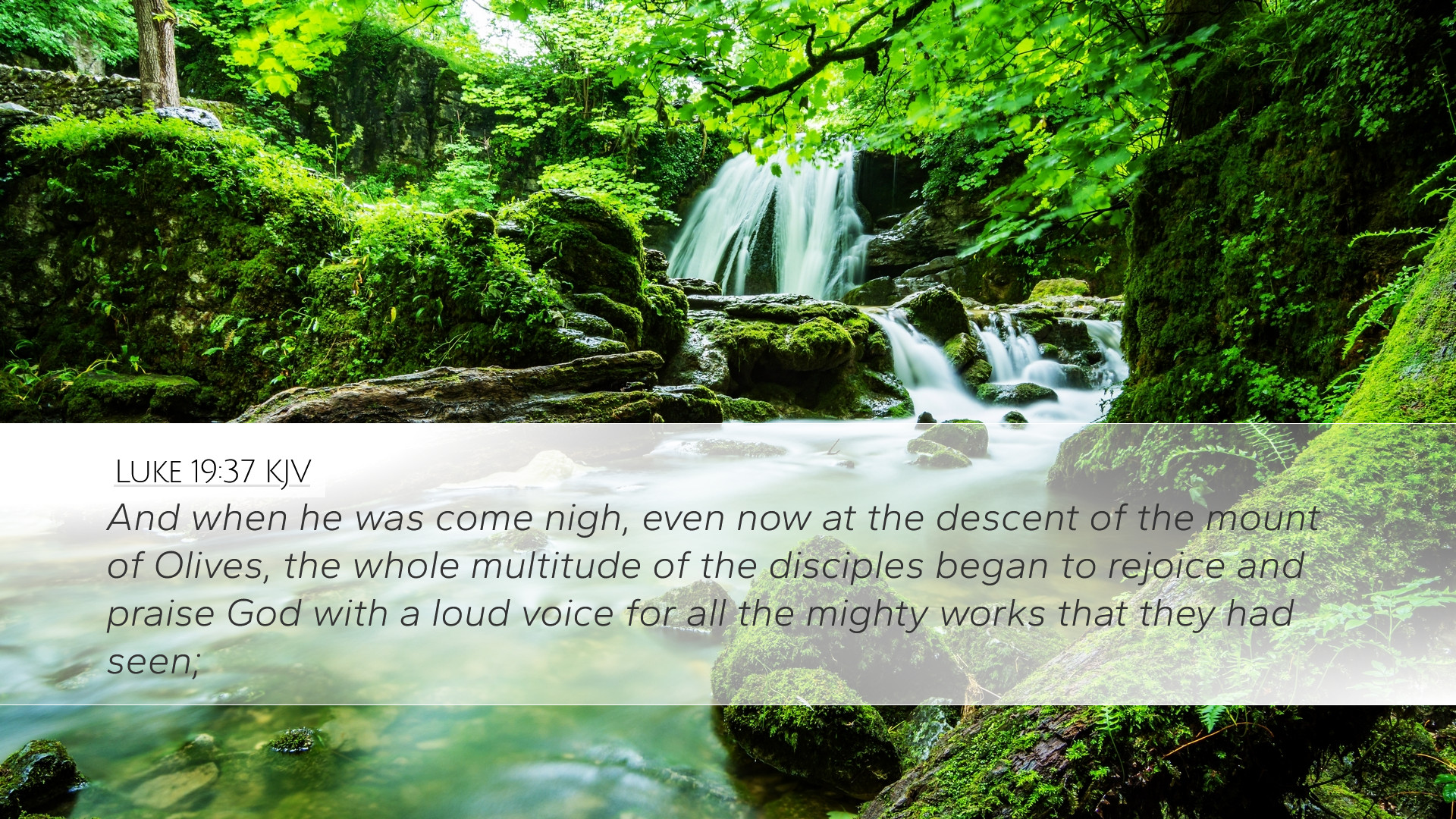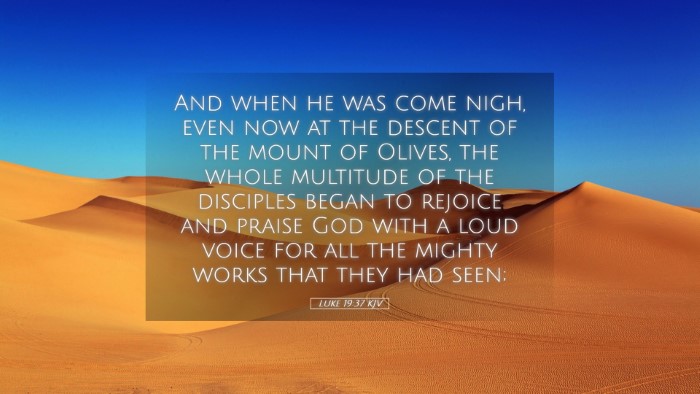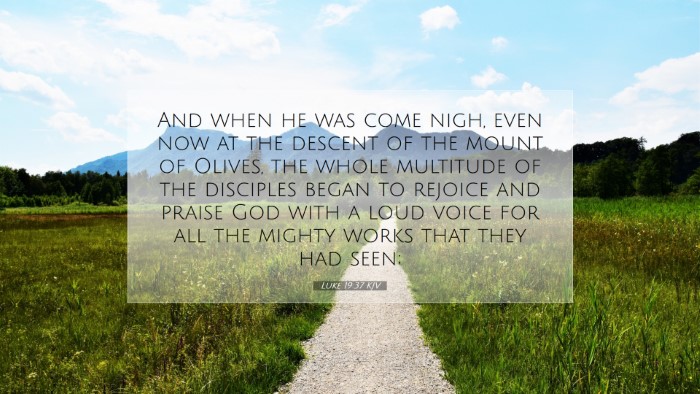Commentary on Luke 19:37
The verse in question, Luke 19:37, captures a moment of profound significance during the triumphal entry of Jesus into Jerusalem. This passage is rich in theological implications and evokes various responses, reflecting the longstanding traditions and expectations surrounding the Messiah.
Text of Luke 19:37
"When He came near the place where the road goes down to the Mount of Olives, the whole crowd of disciples began joyfully to praise God in loud voices for all the miracles they had seen."
Contextual Background
Understanding Luke 19:37 requires an appreciation of the broader narrative context in which it is situated. This moment occurs just before Jesus’ entry into Jerusalem, a pivotal event leading to the Passion. The disciples and the crowd gathered were influenced by expectations of a messianic figure who would deliver Israel from oppression.
The Mount of Olives
The geographical significance of the Mount of Olives cannot be overstated. It stands as a symbolic threshold; it is the place where prophetic declarations concerning the coming Messiah converged. The proximity to Jerusalem adds to the charged atmosphere as Jesus approaches the city that symbolizes both hope and despair for the Jewish people.
The Response of the Crowd
The reaction of the crowd, which includes not just disciples but also other followers and individuals from Jerusalem, is pivotal. They "began joyfully to praise God" in response to the miracles they had witnessed.
The Nature of Their Praise
- **Joyful Worship**: This outpouring of praise emphasizes the joyful aspect of worship. The crowd acknowledged the divine power demonstrated through the miracles of Jesus, reinforcing their belief in His messianic identity.
- **Public Declaration**: Their praise was not a private sentiment but a loud public proclamation, embodying communal celebration. This act of communal praise suggests a recognition of Jesus’ authority and the fulfillment of prophecy.
The Miracles As Catalysts for Praise
Albert Barnes highlights the significance of the miracles performed by Jesus as a foundation for the crowd's praise, which serves as a testament to His divine nature and authority. The miracles were transformative acts that instilled belief and spurred a communal recognition of Jesus as the Messiah.
Matthew Henry remarks that mentioning the miracles in conjunction with their praise serves not merely as a narrative detail, but emphasizes the necessity of recognizing God's handiwork in the world as a stimulus for worship.
Reflection on Messianic Expectations
The crowd's eruption of praise also reflects the complex nature of messianic expectations. In the ancient Jewish context, there was an anticipation of a political liberator, one who would restore Israel to its former glory. This led to an amalgamation of genuine worship and misguided hopes among some of the participants.
Theological Implications
- **Praise as a Response to Revelation**: This moment invites consideration of how experiences of divine revelation evoke worship. The crowd’s response exemplifies how miracles can lead to a recognition of God’s presence and power.
- **Contrasts with Later Reactions**: The initial joyful acceptance of Jesus as the Messiah sharply contrasts with the later rejection symbolized by the crucifixion. This dynamic invites readers to reflect on the fickle nature of public opinion regarding faith and authority.
Conclusion
Luke 19:37 invites pastors, students, theologians, and Bible scholars to reflect deeply on the nature of worship, the character of Jesus as the Messiah, and the dynamics of faith amidst public expectation. The joyous declaration of the crowd serves as a compelling reminder of the joy found in recognizing God's activity in the world through Jesus Christ. This passage, rich in its implications, challenges readers to consider their responses to God's miracles in their own lives and to participate authentically in the communal worship of God.


